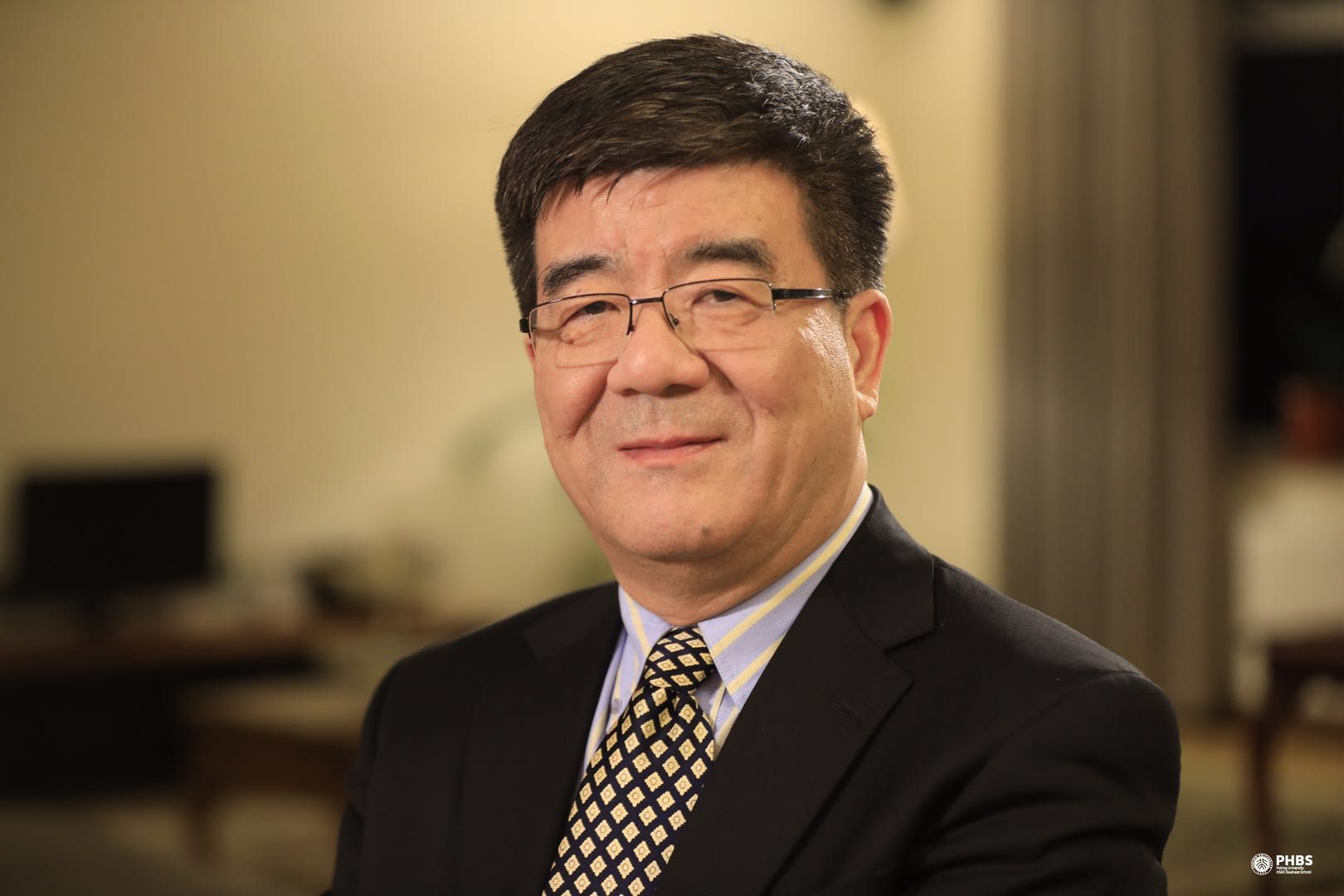By Rachael Pells

Wen Hai, head of Peking University HSBC Business School’s Oxford outpost, says venture will help foster collaboration between Britain and China
The path of British universities opening branch campuses in Asia is a well-trodden one, littered with some successes and a fair few failures too. There is far less travel in the opposite direction – but the dean of a Chinese business school with a UK outpost hopes that this move will encourage other institutions to follow in its footsteps.
Peking University HSBC Business School’s UK branch, based on a former Open University campus just outside Oxford, is set up to teach international business strategy from a Chinese perspective, and has been open to students from China, the UK and the rest of Europe since March last year.
Believed to be the first Chinese branch campus in Europe, the school’s launch coincides with the UK’s exit from the European Union increasing the pressure on the UK to form new international collaborations and attract foreign talent.

READ MORE
Are branch campuses withering?
However, Wen Hai, the school’s dean, told Times Higher Education that the move realised a much longer-held ambition for the university.
“We had an idea we should set up a campus as a bridge to bring people from the UK to China,” he said. “UK students want to learn Chinese business, and Chinese students have always wanted to come here, not just because of Brexit – they have always admired the UK education system.
“Having a [UK] base [would mean] forming more partnerships with UK institutions but also increase our global reputation. Then, two years ago we heard that [this site] was being sold. What an amazing opportunity. That does not happen very often.”
Since its unveiling, the school has attracted attention for its enviable location at Foxcombe Hall, a series of 19th-century buildings in Boars Hill, which were bought by The Open University from the theological institution Ripon College in 1976.
The aesthetic no doubt enhances the business school’s attraction for international students wanting a traditional “Oxford” experience – but walking through the grounds is an eerily silent experience, with most of the students enrolled so far being away or returning to China on exchange programmes.
Eventually, Professor Hai hopes to expand the student population to upwards of 200, “the minimum size in order for it to be a great graduate programme”. The campus will take mainly postgraduates, with some shorter-term exchange students, and aims to maintain the same system and standards as in Shenzhen. In short, this means a master’s degree from the branch will take up to three years to finish, compared with the UK’s standard one year.

Professor Hai said that he was particularly keen to nurture “those who have an interest in China as a growing global market. The good thing about working here is our working language is English – the language is a barrier for many people wanting to come to China,” he explained.
The outpost will therefore act, in part, as a taster for UK and EU students interested in pursuing a career in Chinese business. “We are trying to prepare our students here for a year or two, teach them some of the language, so they can go on to study further or work in China,” he said.
Professor Hai argued that there was “good reason” for the UK and China to “take this opportunity to work closely together”, given the state of global politics. “In [the] UK you have Brexit, and in China we also have the problem of the US,” he said.
While he knew of other universities in China that shared similar ambitions, he said that “not many people really know how to do it…hopefully we can set this example and more campuses will follow”.
Concerns over security and industrial espionage have led to concerns about collaborations with Chinese researchers, in the US in particular, but Professor Hai said that the negative press was not something he felt concerned by.
It was “very natural” for older economies to feel “caution or suspicion” of growing economic competitors, he said.
“How to deal with competitors is something other countries should learn and understand,” Professor Hai said, “[but] I don’t worry so much, because I think both sides will adjust.”
At the same time, the dean said that he was determined for the school to make a positive impact on society at both an international and a local scale. “It is a new experience for us and also for the community,” he acknowledged. “We will do our best to learn from the UK system [and] teach our world-leading practices, but also we want to make a contribution to the cooperation and development of this community we have entered into,” he said.
The reaction so far to the school’s presence had been positive. “We appreciate how the UK education system is so open…China should learn [from this] how to open up [its] education to the world,” he said.
